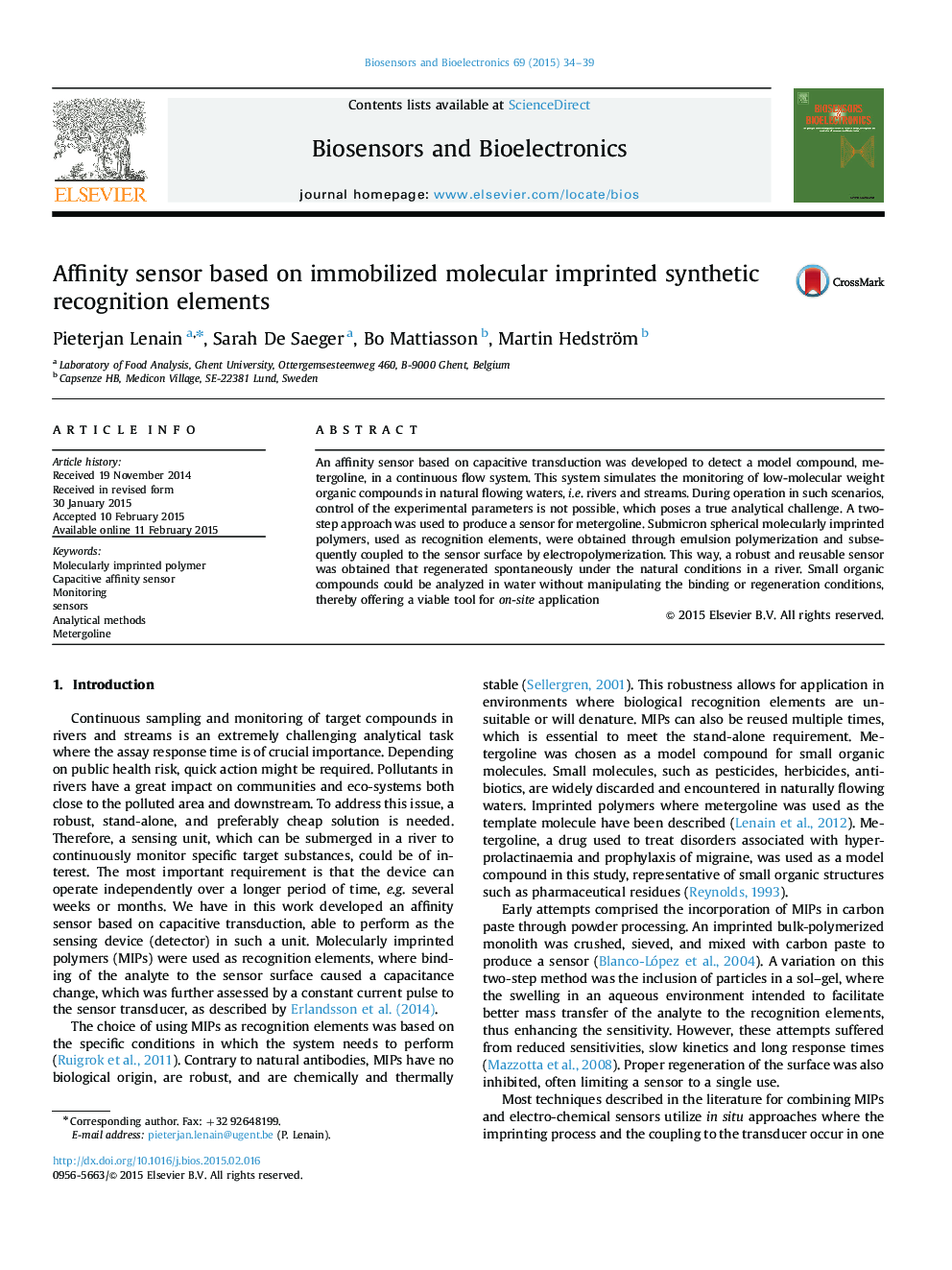| Article ID | Journal | Published Year | Pages | File Type |
|---|---|---|---|---|
| 7232060 | Biosensors and Bioelectronics | 2015 | 6 Pages |
Abstract
An affinity sensor based on capacitive transduction was developed to detect a model compound, metergoline, in a continuous flow system. This system simulates the monitoring of low-molecular weight organic compounds in natural flowing waters, i.e. rivers and streams. During operation in such scenarios, control of the experimental parameters is not possible, which poses a true analytical challenge. A two-step approach was used to produce a sensor for metergoline. Submicron spherical molecularly imprinted polymers, used as recognition elements, were obtained through emulsion polymerization and subsequently coupled to the sensor surface by electropolymerization. This way, a robust and reusable sensor was obtained that regenerated spontaneously under the natural conditions in a river. Small organic compounds could be analyzed in water without manipulating the binding or regeneration conditions, thereby offering a viable tool for on-site application
Related Topics
Physical Sciences and Engineering
Chemistry
Analytical Chemistry
Authors
Pieterjan Lenain, Sarah De Saeger, Bo Mattiasson, Martin Hedström,
